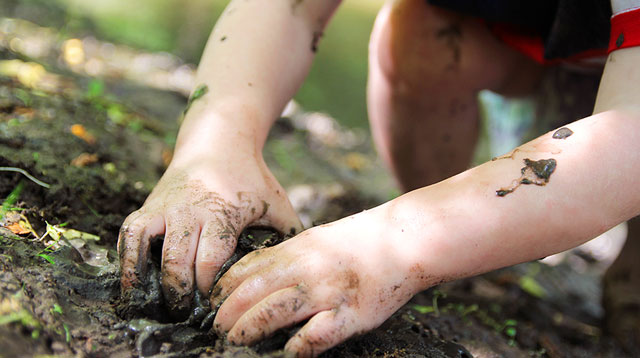
Summers are a great time for families to bond and for children to go beyond their school curriculum. In the United States, since the summer break is usually between 10–11 weeks (May to August/June to Mid-August), it is a great time to indulge your child in some productive summer learning! With all the time at your disposal, you can take an active part in your child’s summer learning experience. So this summer, with the right help and a plan that takes into account your child’s liking, you can change the learning game for them.
All play and no work – make Jack a dull boy too!
To have a productive school break with consistent gains in skills and knowledge, a summer learning strategy is critical for every child. If not, there are chances that they may fall prey to the very common summer slide. Summer learning loss or summer slide is the loss of skills and knowledge during summer break, which often has a snowball effect (subsequent skill loss each year).

A recent study of children in 3rd to 5th grades, for example, showed that they lost, on average, about 20 percent of their school-year gains in reading. The loss in math skills was even higher (up to 27 percent). Staggering, ain’t it? Hence, a carefully strategized summer learning program might be your best bet. As a parent, you can do a lot to aid your child’s learning during the break, to know more, keep reading!
First things first – some important considerations
Every child is different and has a unique learning style, no matter how much we try to classify them into categories. Before deciding on what must your child endeavor to learn this summer, take into account the following:
- Your child’s natural inclinations or areas of interest outside of what’s mandated as curriculum
- Your child’s learning style – do they prefer doing things to learn or getting systematic instruction? Do they prefer groups or one on one teaching? (remember, there is nothing right or wrong about any of these choices, all that we suggest is taking note of them carefully)
- Tutors and instructors available in your city for your child’s chosen area of interest
- Resources (both physical and virtual) are available for aiding or supplementing their learning during the summer break
- The amount of time per day that you would be able to devote to your child’s learning activities
Once you have answers to all the above, you can try the following ways to ensure that this summer makes a difference to your child’s learning curve!
5 OFFBEAT Ways to Help Your Child Thrive This Summer
While the internet is inundated with advice on how and what can you do to help your child learn during summers, what you are about to read is offbeat and actionable! Try to be an active part of your child’s summer learning to sustain it for a good 3-3.5 months. From getting them the right resources that don’t burn a hole in your pocket to try simple activities at home, you can do it all! Just get started and add your own variations to these ideas as a roll with this summer:
1. Get outside and get dirty with them
The best kind of learning happens when a child can see its applications of it. This application can never be made visible with just textbooks or online tutorials. Even the movies and cartoons can’t compare to what the outdoors can teach. And wait, we don’t mean spending the days at sanctuaries or only in your house’s garden. Even a quick trip to Target, the planetarium, the museum, or a casual hop-by at the mechanic’s garage counts! In fact, they count the most. Get your child outside the comfort of their couch and the screens. Get their hands dirty and ask them to observe the world outside. Engage in outdoor activities with them, here are the most simple ones you can start with:
- Gardening – it’s a great way to teach kids important reasoning, initiation, planning, and organization skills (STEM & analytical abilities). It also teaches them about caring and responsibility, all while having fun under the sun!

- Cooking – trust us, this good old hobby is a great pick for your child. Participating in cooking activities can enhance language development (labeling ingredients, listening to the steps, etc.). It also helps with bettering fine motor skills, planning skills, and even math skills!
- DIY Crafts – There are a bunch of DIY art projects that you can find in the market. From a model volcano to the first scenery painting, you’ll find something for your child easily. Science kits like this for children of ages 6-10 are a great pick, for example.
2. Use free resources smartly
You don’t always need fancy setups or a mega shopping trip to the bookstore to find your child’s resources. In fact, it is better to explore the free resources first and then build on the repository as your child’s interest progresses. This is best understood with an example. So, if your child has been talking about all things planets and stars, do this:
- Don’t rush into buying them the biggest space encyclopedia or the most expensive DIY solar system kit. Start small with some basic children’s books on space from a neighborhood library
- To give an interactive edge to their learning, explore free apps like NASA Visualization Explorer
- If their interest progresses and they continue to follow the topic, introduce them to safe and moderated interest groups (online or offline)
3. Get them the right expert help and watch them fly!
All things said and done, nothing beats learning under the guidance of a subject matter expert. A private tutor is your savior and your child’s best friend when it comes to summer learning. Getting the right private tutor, however, we understand, can be tricky. You might not know where to start! The family and friends’ referrals don’t always work and Craigslist isn’t full proof or verified either. But wait, we have a quick fix for the busy and concerned parent that you are! Just log on to Talentnook.com and get your child the right tutor with just a few clicks. All you need to do is the following:
- Create a free account, enter your child’s details and the areas they want help with
- Start exploring hundreds of verified tutor profiles – from piano to painting to Spanish & French to poetry and algebra, you name it!
- The best part? You don’t have to sign up for a tutor’s services directly, you can request free demo lessons before signing up
- Choose the tutor based on your budget, timing preference, and mode of study (online or offline, one on one or in groups)
- You can also explore study pods for a more immersive experience during the summers

Apart from hiring a dedicated tutor, you can also explore our specially curated programs under Talentnook Writing Academy or Talentnook Reading Program. Let’s just say cheers to a productive summer this year, with Talentnook!
4. Slow down and instill in them a sense of wonder
Summer holidays are a great time for children to soak in the world and learn at their own pace. Remember, all you must endeavor to do is to give them enough opportunity to learn during summers and rule out dormancy. It is a great time for children to brush up on the basics and make core concepts in subjects like math strong for the rest of the year. Let them take their own sweet time observing the world around them and applying what they’ve learned. Make time for activities that the busy school schedule didn’t allow otherwise.

Here are some examples to elucidate this:
- Slow nature walks are a great way to understand the ecosystem. Ask your child to spot a bug they’ve read about or a camouflaged pupa. Watch them then soak in science so much better as they’ll relate what they read to these experiences
- Watch informative children’s documentaries (on wildlife, biographies of great leaders, writers, industry stalwarts like McDonald’s, etc.)
- Talk to your child about the subjects you liked and why, instill a sense of wonder by taking them through your journey of learning
And lastly, don’t forget to leave some unstructured time (at least 3-4 hours) every day for them to enjoy freely. There is a lot of vicarious learning that happens even when your child isn’t buried in textbooks and tutorials! Trust that process and set them free for their rightful timeshare.
5. Leverage the power of community learning (both online and offline)
Lastly, summers are a great time to learn with the community. Get your child to join hobby groups or even community service groups. Online or offline, these groups are a great way for children to learn from each other and also from mentors. The groups can have different structures based on who’s formed them. Many groups are formed by parents within a neighborhood while others are a paid-membership-based arrangement. Many online groups are free for children to join, but might need your moderation. Depending on your bandwidth and preference, pick a community group for your child this summer and watch them cross-learn in very unexpected ways!
The Final Word
Don’t over-structure the summer break! Summer learning must be an inherent part of spending an enjoyable summer. Anything that becomes a forced replica of the school schedule will fizzle out for both you and your child sooner than anything else. So take a step back, get them the right help (we insist on a private tutor for all the reasons cited above) and relax! Enjoy these precious few months with your child and participate in their learning journey from a place of happiness and zero pressure. Happy summer holidays to you and your child!
We hope this article helped you with everything you wanted to know about effective summer learning for your child. For more informative articles on parenting, explore our blog here.